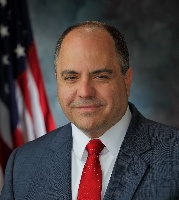Hinsdale Trusts Lawyer, New York
Sponsored Law Firm
-
 x
x

Click For More Info:
-
Ballon Stoll PC
810 7th Ave Suite 405 New York, NY 10019» view mapImmigration Law Counselors At Law
Founded in 1931 and built upon a tradition of excellence, Ballon Stoll P.C. is a mid-sized full-service law firm catering to the needs of businesses and individuals alike.
212.575.7900
Not enough matches for Hinsdale Trusts lawyer.
Below are all Hinsdale Estate lawyers.
Raymond Paul Sciarrino
✓ VERIFIEDCriminal, Real Estate, Personal Injury, Traffic, Estate
Licensed: 22 Years
Sciarrino & Sciarrino, P.C. is a criminal law firm serving Rochester and the surrounding areas of Livingston County and Wyoming County. For more than ... (more)
Robert Odawi Porter
Government, Trusts, Native People, Personal Injury
Status: In Good Standing Licensed: 35 Years
James Timothy Embser
Trusts, Estate Planning, Construction, Housing & Urban Development
Status: In Good Standing Licensed: 63 Years
Racheal Christine Irizarry
Trusts, Business & Trade, Wills, Business
Status: In Good Standing Licensed: 23 Years
Francis Robert Vavonese
Estate Planning, Nursing Home, Power of Attorney, Trusts
Status: In Good Standing Licensed: 19 Years
Andrew C. Hilton III
Real Estate, Trusts, Wills & Probate
Status: In Good Standing Licensed: 39 Years
Alan Leroy Spears
Real Estate, Estate, Divorce & Family Law, Criminal
Status: In Good Standing Licensed: 41 Years
John Albert Cappellini
White Collar Crime, Estate Planning, Bankruptcy, Contract, Natural Resources
Status: In Good Standing Licensed: 27 Years
Christopher Andrew Spence
Federal Trial Practice, Estate Planning, Workers' Compensation, Personal Injury
Status: In Good Standing
 Robert Klipstein New York, NY
Robert Klipstein New York, NY AboutBallon Stoll PC
AboutBallon Stoll PC

